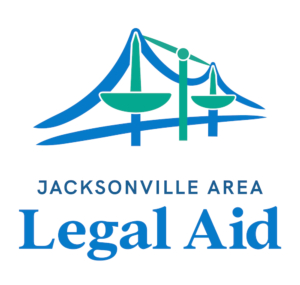Elder Law
The term “Elder Law” applies to many different areas of the law that affect individuals over the age of sixty. JALA provides representation to individuals over the age of sixty in many areas of the law. Our case priorities change periodically depending on attorney availability, funding opportunities and changes in the law.
Please note that as much as we would like to help every client who applies for our services, we cannot accept every case due to limited resources. Case acceptance will depend on the circumstances of each case, whether all eligibility criteria are met, and staff availability. On the other hand, if you do not see your legal problem listed, it does not mean we will not consider your case. We are always interested in learning about new and different issues affecting our community.
Get Help
- Apply for services,
- Apply to our reduced-fee program,
- Consult our self-help resources, or
- Checkout the resources below.
Other services available to help elderly persons
You may also wish to contact one of the many local agencies that provide special services for elderly persons that may prevent neglect or abuse by providing services to the elderly Person. The following are some suggested sources of services in Jacksonville:
| Elder Source The Area Agency on Aging for Northeast Florida 10688 Old St. Augustine Road Jacksonville, FL 32257 (904) 391-6600 |
State of Florida Department of Children & Families Adult Services (904) 485-9742 – Local (800) 963-5337 – Elder Help Line |
City of Jacksonville Community & Senior Center Services (904) 630-3450 |
| Aging True (904) 807-1200 |
Lutheran Social Services (904) 448-5995 |
|
Click topics below to expand for more information.
Advance Health Care Directives
Elders Caring for the Children of Others
Guardianship
A guardianship over the person may exercise rights on behalf of the ward such as making medical decisions, decisions about where the ward will live. This type of Guardian is required to report to the Court yearly and submit a plan for the ward’s care.
A guardianship over the property is given authority over ALL of the ward’s property and can make financial decisions on behalf of the ward such as paying the ward’s bills, selling the ward’s property, and caring for other financial needs on behalf of the ward. A guardian over property is required to inventory the ward’s property and account for it annually to the Court. The guardian over property must also seek the Court’s permission for certain financial transactions.
Grandparent Visitation
Elder Abuse
We often feel powerless to stop the abuse or get help for the abused elderly person but there are ways you can help. If you know of an elderly person who is being neglected or abused or you are an abused elderly person, you can:
- Report the neglect or abuse to the State of Florida abuse hotline by phoning: 1-800-962-2873.
Telecommunications device for the deaf (TDD) 1-800-453-5145 Department of Children and Families (DCF) must investigate the complaint within 24 hours by referring the complaint you file to DCF office in Jacksonville. DCF assigns your complaint to a staff person for further investigation and any necessary intervention to stop or prevent the abuse or neglect. DCF can intervene in many ways, such as providing services or referring to other agencies for service to stop the abuse or neglect; removing the abused person from the abusive situation and/or placing the abused person in a care facility or program that provides shelter and services. - In the case of an elderly person living in an adult living facility (ALF) or nursing home, report the neglect or abuse by filing a complaint in writing or by phone with the Long Term Care Ombudsman Council for this area. The Ombudsman Council is a watchdog organization for persons living in care facilities and can be reached at:Long Term Care Ombudsman Council
5920 Arlington Expressway
Jacksonville, Florida 32211
723-2058 or 1-800-342-9685The Ombudsman Council staff person in your area will assign your complaint to a member of the Ombudsman Council for investigation and necessary intervention to prevent abuse or neglect. The Ombudsman Council can request the facility be cited for violation, the license of the facility be placed in provisional status, the removal of the abused person from the facility and placement in another facility. - If you are dissatisfied with or have complaints about the investigation of any abuse report, you can contact in writing or by phone the DCF Human Rights Advocacy Commission for your area. The Advocacy Commission is a watchdog organization for abused and neglected children, handicapped adults, elderly persons and mentally or developmentally disabled persons living in care facilities. The Advocacy Commission investigates any complaint about the way abuse investigations are handled and reviews all abuse complaints for persons who are in state run or state contracted institutions or programs. You may contact the Advocacy Commission for your area at:DCF Human Rights Advocacy Commission
5920 Arlington Expressway
Jacksonville, Florida 32211
723-2057
The Advocacy Commission staff person in your area will assign your complaint to a member of the Advocacy Commission for investigation and necessary intervention to prevent the abuse or neglect.
- Information on the person who is being abused or neglected, such as name, address, phone number and age of the elderly person. Also, if you know of any disabling condition they may have, whether or not they live in their own home or a care facility. If the person lives in a care facility, try to provide the name, address, and phone number of the care facility.
- Any information on who you suspect of neglecting or abusing the elderly person,
including their name, address, phone number, and relationship to the elderly person. - A brief description of the neglect or abuse that has taken place, when it occurred and if it’s an ongoing pattern of abuse or a single incident.
